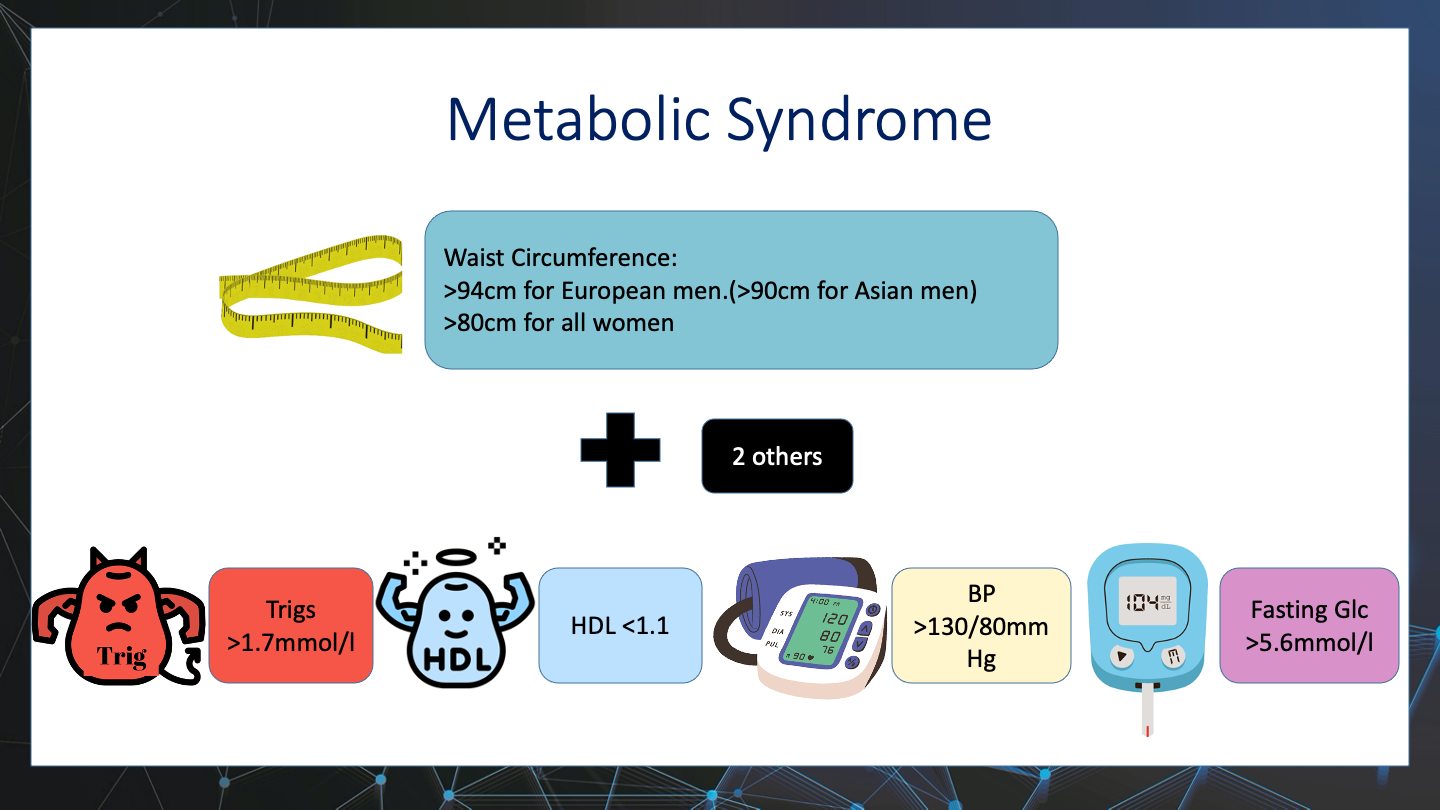
27 Oct How to Reverse Type 2 Diabetes: Understanding Metabolic Syndrome and Lifestyle Changes
Metabolic syndrome is one of the key factors that increases the risk of type 2 diabetes. As a GP, I see people with this syndrome daily — it’s incredibly common. The good news? With the right lifestyle changes, it is possible to reverse type 2 diabetes and improve overall health.
What is Metabolic Syndrome and How Does it Affect Type 2 Diabetes?
Metabolic syndrome involves a group of co-existing conditions that increase the risk of heart disease, stroke, and type 2 diabetes. These conditions include high blood sugar, excess belly fat, high blood pressure, and abnormal cholesterol levels.
There are many definitions of metabolic syndrome, but one of the most widely used combines these indicators:

How Can I Tell if I Have Metabolic Syndrome?
If you’ve recently had a blood sugar or cholesterol test, you may already have clues. For most of us, signs of metabolic syndrome include:
1. How Do I Know if I Have Belly Fat That Increases Diabetes Risk?
Measure your waist circumference with a tape measure around your belly button, not too tight, in centimetres. Fat stored around the abdomen, particularly around internal organs like the liver, can increase the risk of type 2 diabetes and liver disease. The good news is this is often the first fat to reduce when losing weight.

2. How Can Blood Pressure Affect My Diabetes Risk?
High blood pressure is a common part of metabolic syndrome. Many pharmacies provide free blood pressure checks, and home machines are a valuable investment. Regular monitoring can help you manage your health and lower your risk of type 2 diabetes.
3. How Do I Check My Blood Sugar Levels?
The most accurate way to assess blood sugar is via a blood test ordered by your GP. If you are concerned about prediabetes or type 2 diabetes, use the Diabetes UK risk calculator. If your risk is high, contact your GP for proper testing.
Why Is Knowing My Risk Important?
Understanding your risk is crucial because prevention is far better than cure. Each of the conditions within metabolic syndrome can improve or even disappear with consistent lifestyle changes leading to weight loss.
What Simple Steps Can I Take to Lower My Risk?
If you focus on just three things consistently, your risk of developing type 2 diabetes can be significantly reduced:
1. Why Should I Cut Out Sugary Drinks?
Avoid fizzy drinks and high-sugar fruit juices or smoothies. Artificial sweeteners should also be limited. This helps stabilise blood sugar and reduce insulin resistance.
2. Why Should I Avoid Processed Foods?
Processed foods, including ready meals and snacks like biscuits or crisps, can spike blood sugar and contribute to weight gain. Choosing whole, unprocessed foods supports blood sugar management.
3. How Can Daily Walking Help Reverse Type 2 Diabetes?
Just 10 minutes of walking every day can improve insulin sensitivity, help with weight management, and reduce belly fat — a major factor in type 2 diabetes risk.

What Other Lifestyle Changes Support Reversing Type 2 Diabetes?
Beyond the three key steps above, there are many other changes that can improve blood sugar control, including:
- Optimising meal timing and nutrition choices
- Supporting gut health through a balanced diet
- Improving sleep quality
- Managing stress effectively
Learn more about how diet, lifestyle, and behavioural changes can help reverse type 2 diabetes in Dr Nerys Frater’s free resources: Watch the three-part breakthrough video and download the free blood sugar guide PDF.
When Should I Start Making These Changes?
Don’t wait until you are diagnosed with type 2 diabetes or another metabolic condition. Start now. Make small, consistent changes each week and maintain them to see long-term benefits.
Bottom Line
Reversing type 2 diabetes is achievable with lifestyle changes that address metabolic syndrome. Focus on cutting sugar, avoiding processed foods, moving daily, and supporting your body with healthy habits. Prevention and early action are key.
